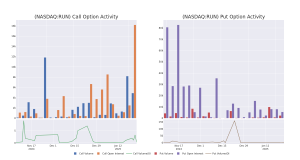
By Chibuike Oguh and Amanda Cooper
NEW YORK/LONDON (Reuters) -Global stocks fell while U.S. Treasury yields rose on Friday after a stronger-than-expected jobs data reinforced expectations that the Federal Reserve will likely keep interest rates elevated for longer than traders were betting on.
Wall Street’s main indexes finished lower, with 10 out of 11 categories of stocks in the benchmark S&P 500 closing in the red led by financials, real estate, technology and consumer staples. Energy stocks ended higher. All three indexes notched their second straight week of losses.
The Labor Department data on Friday showed that the U.S. economy created 256,000 jobs in December, beating analyst expectations of 160,000, according to a Reuters poll of economists.
“This is one of those classic good-news-is-bad-news types of data point,” said James St. Aubin, chief investment officer at Ocean Park Asset Management in Santa Monica, California. “When I think about the economic data that’s good for growth, but it certainly weighs on the yield picture and kind of puts a bit of a bind when it comes to lowering rates. And I think the market is trying to sort that out.”
Markets are now pricing in a single Fed rate cut no sooner than June. Prior to the jobs report, traders were expecting the Fed to cut rates as early as May with a 50% probability of another rate cut before year end, according to CME’s FedWatch tool.
The yield on benchmark U.S. 10-year notes rose 8 basis points to 4.761%. It had reached as high as 4.79%, its highest level since November 2023.
The Dow Jones Industrial Average fell 1.63% to 41,938.45, the S&P 500 fell 1.54% to 5,827.04 and the Nasdaq Composite fell 1.63% to 19,161.63.
Shares in small cap companies, which can be more vulnerable to fluctuations in interest rates, came under the most pressure during the session, pushing the Russell 2000 down 2.22%.
MSCI’s gauge of stocks across the globe fell 1.39% to 833.86. The pan-European STOXX 600 finished down 0.84%, dragged down by utilities, consumer non-cyclical, and real estate stocks.
“Bond yields are climbing today because the ability to cut further is going to be diminished after today’s report even though I always advise to look at January numbers with a grain of salt given seasonality issues that work itself out in the next couple of months,” St. Aubin added.
Government bond yields have jumped higher this week amid a broad market selloff that pushed long-dated borrowing costs to multi-year highs.
The turmoil in the fixed income market has hit UK government bonds particularly hard, pushing 30-year gilt yields to their highest since 1998, as investors grow increasingly worried about Britain’s finances.

